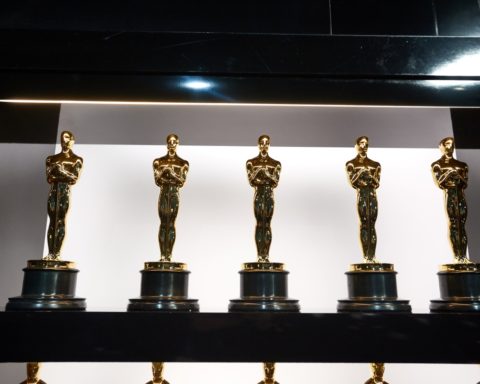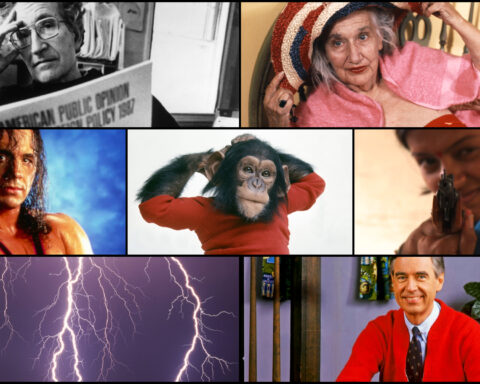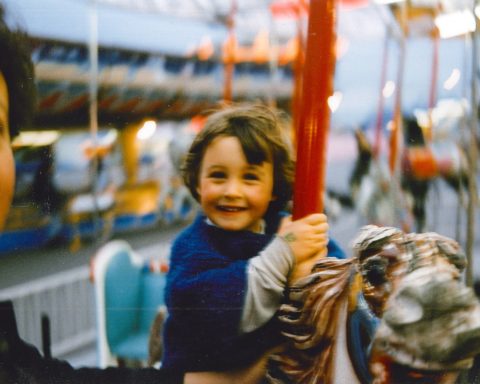PETER IS NOT A MAN TO SUM UP in a few words, sentences or paragraphs, so I will rant.
In 1996, I had overnight access to an editing table during the midnight shift at the NFB, and to stay awake I would explore the hallways in my socks. It is here that I first met Peter. One night, at around 2 AM, I turned the hall corner and there stood a large looming figure. Like in a shootout scene from a Wild-Wild West movie, from opposite ends of the hall, we slowly approached, half asleep. I was worried it was a security guard. During my wanderings I sometimes triggered silent alarms and got into trouble. As I got closer and noticed his blood-shot eyes and stocking feet I relaxed; it was clear that this was not a security guard. Peter was editing Manufacturing Consent and I was trying to edit my film The Street. We looked at each other in the hall, nodded and continued our late-night strolls.
For the next year I would see him with Mark Achbar, hunkered down in their Steenbeck room. When he saw me he would always sing out “Oh, Danny Boy.” I barely knew him but he was already touching my heart. It was clear this was a special guy.
Time went by and Peter finished the now famous Chomsky doc, but I continued editing, unable to complete my film. Now at the top of the doc world with his new film, Peter still found time to come by at night and check out my progress. The four-day Easter weekend was approaching and this meant I could work in an edit room from midnight on Wednesday all the way through to Tuesday AM. Peter agreed to help me, and when I say ‘help’ I mean 20-hour days. When Tuesday morning rolled around, Peter looked at me and said, “We are staying here. Your film is about homelessness and in that spirit we are going to squat in this edit room and not move till this film is done. We’ll dare them to move us. They’ll chicken out.” Seven weeks later, Peter completed editing The Street. Peter led the sound edit and mixing sessions, stages I had never experienced as a rookie filmmaker. Without him my first feature doc might never have been completed.
This is classic Wintonick. Peter has helped me and so many others get our films made. Not only that, he challenged us to make better films. If you were committed to your film and could not gather the means to complete it, Peter would find a way to help you. Not just in Canada but all over the entire world and not just with friends but with any deserving documentarian. But you had to care and the film you were making had to be the most important goal in your life.
We all agree Peter was a saint. He was committed to our art form and it seemed that he cared more than anyone else. He was a warrior. Peter was Canada’s Documentary Ambassador—and actually the greatest advocate for docs in the world.
Still it is important to note that Peter did not tolerate fools, opportunists, posers or those in it for the money. He was able to set you straight with encouragement or, if necessary, with a cutting critique that could be harsh. This made Peter real, made him complete, made him matter. He gave me one piece of solid advice: “When you prepare for a film festival you need to establish one goal and then go out and do it.” He challenged us all to BE HERE NOW—perhaps nothing else matters. I loved him.











